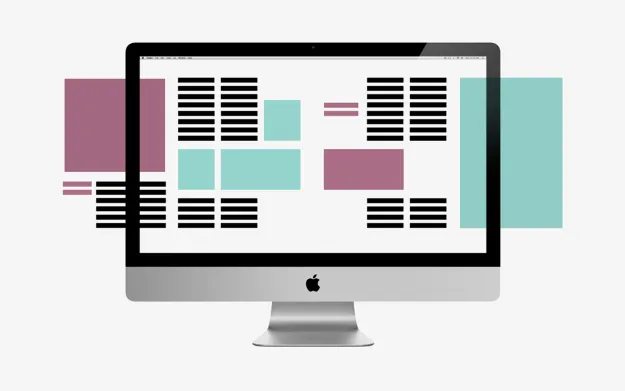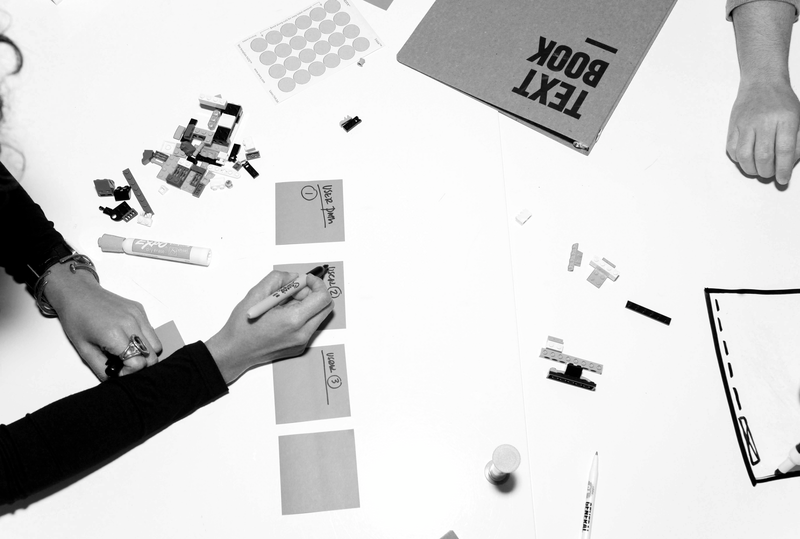In today’s tech landscape, it’s all about user experience. The demand for skilled UX designers has skyrocketed, paving the way for diverse and rewarding career paths. In this blog, we’ll explore the essence of UX design, delve into the exciting avenues it opens up for career development, and shed light on UX design salaries.
Whether you’re a seasoned professional navigating the industry or a curious learner looking to dive into this fast-growing field, read on to get all the information you need to know about starting a UX design career.
Exploring the World of UX Design
User experience (UX) design is a multidisciplinary approach focused on enhancing user satisfaction and usability by improving the overall interaction between users and a product or system. It encompasses a range of design elements, including usability, accessibility, visual design, and information architecture, to create seamless and enjoyable user experiences. UX designers collaborate across various stages of product development to ensure that the end product meets the needs and expectations of its users.
Recent research from the U.S. Bureau of Labor Statistics forecasts 23% growth in the employment rate for UX designers from 2021 to 2031. UX design plays a pivotal role in shaping the success of digital products and services in sectors like:
- E-commerce: Effective UX design can enhance user engagement and increase conversion rates, driving business growth.
- Healthcare: Ux design can improve the accessibility and usability of medical apps, leading to better patient experiences.
- Finance: UX design contributes to creating intuitive and secure interfaces for banking and financial tools.
Regardless of industry, well-executed UX design improves customer satisfaction, reduces support costs, and increases brand loyalty. As the digital landscape continues to expand, the demand for skilled UX designers grows exponentially, emphasizing the critical need for more professionals in the field to drive innovation, solve complex user problems, and ultimately elevate the quality of digital interactions across diverse industries.
UX Design Principles

In the dynamic world of UX design, success hinges on a solid understanding of core principles and methodologies that govern user experiences. Aspiring UX designers should familiarize themselves with these guiding principles to create intuitive, effective, and enjoyable digital products.
For example, discoverability, significance, consistency, feedback, and conceptual and mental models are some of the core UX design principles. Let’s take a look at each briefly.
- Discoverability focuses on users easily finding features through consistent labeling and intuitive organization, assessed through usability testing. Signifiers, whether visual, auditory, or tactile cues, guide users in interacting with elements.
- Consistency maintains uniform design elements, reducing cognitive load and confusion, achieved through design patterns and collaboration.
- Feedback involves timely information on user actions, aiding understanding through visual cues like confirmation messages.
- Conceptual and mental models ensure intuitive interfaces, refined through user research, prototyping, and usability testing.
Embarking on a career in UX design requires a comprehensive grasp of all these fundamental UX principles, and General Assembly’s short course in UX design provides a hands-on experience to achieve just that. The course covers a variety of vital UX principles, ranging from initial user research and meticulous content strategy to the creation of wireframes, prototypes, and the critical phase of usability testing. Through this learning journey, participants gain the practical UX skills and knowledge necessary to navigate the intricate landscape of UX design.
Importance of a User-Centric Approach
A user-centric approach ensures that no matter what the product is, the final product resonates with its intended audience, fostering a sense of connection and understanding. This methodology acknowledges that effective design isn’t just about aesthetics, but also about creating a harmonious interaction between users and digital interfaces.
As an aspiring UX designer, you want to make sure you understand the the importance of a user-centric approach and apply that approach in your designs. And sometimes, one of the best things you can do is draw inspiration from other designs — ones that clearly put the user at the core of their approach.
Career Paths in UX Design
Embarking on a career in UX design opens up a world of diverse and dynamic roles, each playing a crucial part in shaping the user experience. Let’s explore the varied career paths within UX design and the unique opportunities they offer aspiring designers.
1. UX Designer
UX designers focus on the overall user experience, ensuring that digital products are intuitive, user-friendly, and aligned with user needs. They conduct user research, create wireframes and prototypes, and collaborate with cross-functional teams to bring designs to life.
2. UI Designer
UI designers concentrate on the visual elements of a digital interface. They craft the look and feel of the product, considering color schemes, typography, and imagery to create a visually appealing and cohesive user interface.
3. Interaction Designer
Interaction designers specialize in designing the interactions and animations users experience in a digital product. They focus on making interactions seamless, engaging, and in line with user expectations.
4. UX Researcher
UX researchers delve into user behavior and preferences through various research methods. They gather insights that inform design decisions, conducting usability testing, interviews, and surveys to ensure designs meet user needs.
5. Information Architect
Information architects organize and structure information within a digital product to enhance usability. They create sitemaps, define navigation systems, and ensure that users can easily find and access information.
Industry-Specific Roles: Niche Opportunities in UX Design
Beyond these foundational UX-focused roles, UX design offers other exciting opportunities tailored to specific industries. Whether it’s gaming, e-commerce, healthcare, or many other sectors, each industry presents unique challenges and creative avenues for UX designers to explore. For example, gaming UX designers may focus on creating immersive and enjoyable gaming experiences, while healthcare UX designers prioritize accessibility and user well-being in health-related applications.
Why UX Design is a Smart Career Choice
UX design is an excellent career choice for those looking to apply a range of perspectives to the field. Whether you’re transitioning from graphic design, psychology, or even engineering, UX design provides a space for your skills and creativity. Additionally, the demand for UX designers across industries ensures a wealth of opportunities for those seeking a fulfilling and impactful career.
Navigating the Money Talk: Salary Insights for UX Designers
Embarking on a career in UX design not only brings creative fulfillment and the
opportunity to shape digital experiences, but also opens the door to competitive salaries in a rapidly evolving field. Understanding the global landscape of UX design salaries is essential for aspiring UX designers seeking to make informed decisions about their career paths.
According to UX Design Institute, the salary benchmarks for fast-growing UX design roles can vary from $77,000 to $121,000 per year in the U.S.
In the UK, if you’re a junior UX designer, you can earn anywhere from £27,000 to £33,000 per year. As you move into a more senior role, your salary can increase from £48,000 to £67,000 per year.
And according to Interaction Design Foundation, the average UX Design salary in Australia ranges from $90,000 to $105,000 per year.
Factors Influencing UX Design Salaries
Experience level: Portfolio depth and project success contribute to salary ranges.
Geographic location: Affects salaries based on living costs, with tech hubs often offering higher compensation.
Industry: Specialization especially in finance, healthcare, or technology, can impact earning potential.
Specific skills: Proficiency in design tools, coding knowledge, user research expertise, and familiarity with emerging technologies like AI, distinguishes designers and influences salaries.
In recent years, UX designer salaries have experienced steady growth, propelled by the increasing recognition of the discipline’s crucial role in product success. The demand for skilled UX designers has intensified across industries, particularly in technology, finance, and healthcare, leading to competitive compensation packages. As companies prioritize delivering exceptional user experiences, the upward trajectory of UX designer salaries will likely persist, driven by the evolving landscape of digital innovation.
Kickstart Your Journey into UX Design
Starting your career in UX design involves strategic steps to hone your skills, connect with industry professionals, and gain hands-on experience. Here are three essential steps to kickstart your journey into UX design:
1. Invest in Your Skills
To stand out in the competitive field of UX design, investing in a diverse skill set is crucial. Hiring managers seek a combination of hard and soft skills. On the technical side, proficiency in design tools, prototyping, and user research methodologies is key. Soft skills, including empathy, communication, and problem-solving, are equally essential for effective collaboration and user-centric design.
Consider exploring our free UX design beginners workshop for foundational insights. Then, dive into one of our comprehensive courses in UX design, providing a structured path to mastering essential skills and deepening your expertise in UX design, from concept to execution.
2. Build Relationships with UX Designers
Immerse yourself in the UX design community to foster connections with industry professionals. Joining UX communities provides valuable opportunities to engage in discussions, attend meetups, and gain insights from experienced UX designers. There are many free communities you can join through channels like LinkedIn, Slack, Facebook, Discord, and Reddit. You can also get access to an incredible network when you choose our UX Design Bootcamp or Short Course.
Student review of General Assembly’s UX Design Bootcamp
Networking within these communities expands your knowledge and opens doors to potential mentorship and career coaching. At General Assembly, our UX Design Bootcamp offers students the advantage of a dedicated career coach, both during and after learning. This personalized support enhances your job search strategy and provides guidance tailored to your career goals.
3. Gain Real-World Experience
Building a compelling design portfolio is essential for showcasing your skills to potential employers. When creating a UX design portfolio, be sure to showcase your best work and use all the resources you can find, including taking inspiration from portfolios created by other designers. Here’s our sample of the 8 best case studies illustrating the impact of great UX design. And don’t forget, our UX Design Bootcamp comes complete with plenty of real-world, portfolio-building experience and examples to make your portfolio shine.
Your UX Design Career Awaits You
Enroll in our UX Design Bootcamp to gain hands-on experience and develop a portfolio that reflects your expertise. Our courses incorporate real-world projects, allowing you to apply theoretical knowledge to practical scenarios. By the time you graduate, you’ll have a portfolio that demonstrates your problem-solving abilities and creative approach to UX design.
As a UX designer, you have the ability to shape future digital experiences of consumers all around the world. Don’t be afraid to take the first step. Contact our Admissions team today to learn more.
